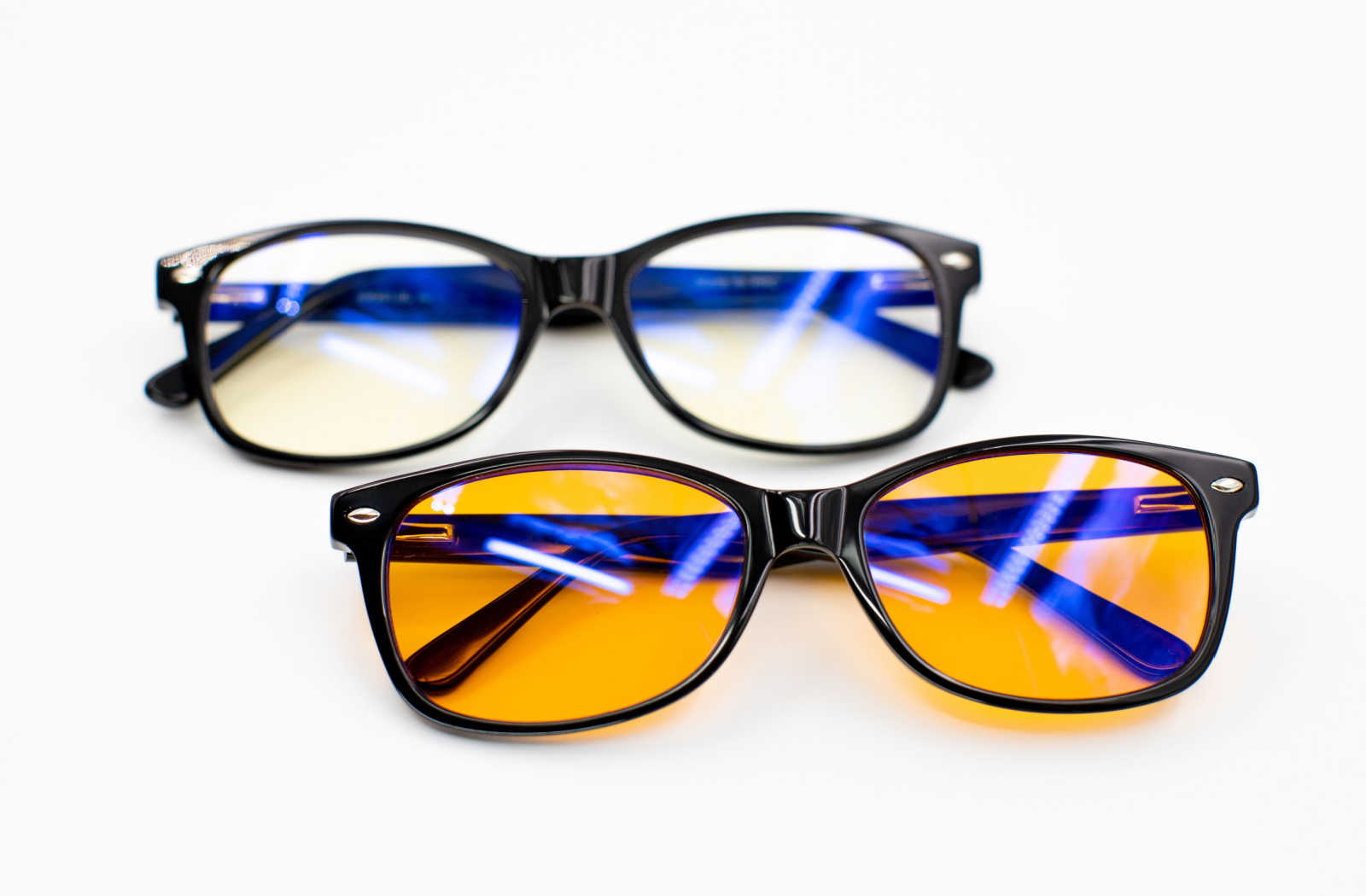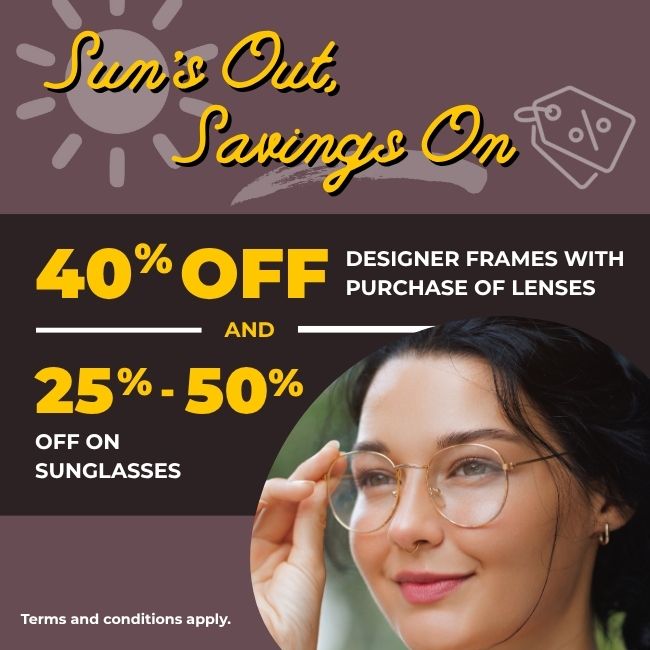Dry eyes are a common vision condition when your eyes have difficulty producing tears or high quality. Spending the day staring at a screen or monitor is one way you can strain your eyes and overexpose them to blue light. .
Reducing your exposure with blue light glasses can eliminate some of the discomforts you might feel from digital eye strain and vision conditions like dry eyes.
At Calgary Optometry Centre, we provide personable and attentive care to help you feel comfortable with your eye care specialist. We would be happy to book a consultation and help you to discuss your ocular health.
Can Blue Light Cause Dry Eyes?
Blue light is electromagnetic energy that moves in waves and is produced mainly by the sun but also through artificial sources like computers, laptops, smartphones, and other monitors. Staring at a screen can impact our blinking and lead to issues like dry eyes.
Tips for Reducing Blue Light Exposure
Overexposure to blue light happens more frequently as people spend more time on their phones or working from a computer. Here are a few tips to help minimize exposure and protect your eyes:
- Take Frequent Breaks
- Use Artificial Tears (eyedrops)
- Wear Blue Light Glasses or other light-sensitivity glasses
What Are Blue Light Glasses?
Blue light glasses contain lenses coated in a unique material meant to deflect some glare from LED screens.
What is Blue Light?
Blue light is everywhere and comes primarily from the sun and other artificial sources. The effect blue light can have on humans, and our eyes are yet to be fully established but remain a popular area of study. In many cases, artificial blue light is weak and won’t cause serious problems, but long-term overexposure has been known to increase the risk of eye problems.
What is Dry Eyes?
Dry eye is a condition where the eyes lack the proper lubrication and dry more quickly. It can stem from insufficient tears or an excess of tears, but a thorough examination from an eye care provider can help to determine if you are experiencing the condition.
Symptoms of Dry Eyes
Dry eyes can have a wide range of symptoms, including the following:
- Stinging, burning, or general discomfort
- Red and itchy eyes
- Sensitivity to light
- Blurry vision
- Difficulty driving at night
- Stringy mucus
- Discomfort when wearing contact lenses
- Feeling like something is in your eye
If you notice any of these symptoms, don’t hesitate to book an appointment with your optometrist to discuss your eye health.
Causes of Dry Eye
Dry eyes can be an uncomfortable experience, but it is not uncommon. Two reasons generally cause it; decreased tear production or increased tear evaporation.
Decreased Tear Production
If you have a decrease in tear production, your body cannot produce enough tears to keep your eyes properly lubricated. Aging, nerve damage, and certain medications are some reasons you might be experiencing a decrease in tear production.
Increased Tear Evaporation
Increased tear evaporation refers to clogging of the meibomian gland on your eyelids may lead to your tears evaporating quicker than they should. If your tears evaporate too quickly, your eyes may lack moisture, leading to dry eye symptoms.

Some other common causes of dry eyes include the following:
- Environment
- Medications
- Laser Eye Surgery
- Inflammatory Diseases
- Aging
- Systemic Disorders
How to Treat Dry Eye?
If you have dry eye symptoms, you can try a few methods to help eliminate some of the symptoms and promote faster healing.
Artificial Tears
Many pharmacies and superstores will be able to provide you with eye drops over the counter, and they can be a great tool for reducing the discomfort of dry eyes. You can choose between preservative-added and preservative-free drops. Eyedrops with preservatives can lead to discomfort in some people and should be used less frequently. Check with your doctor if you have any further questions about using artificial tears.
Medications
In some cases, your eye care specialist may recommend that you use medications to help reduce inflammation along the edge of your eyelids. Antibiotics for dry eyes may help to stop oil in your glands from affecting your tears.
Nasal Spray
Certain types of nasal sprays can be used to increase tear production and reduce the symptoms of dry eyes. For more information, speak with your eye doctor
Closing Tear Ducts
A less common treatment your doctor might recommend is to wholly or partially close your tear ducts to prevent the tears from leaving your eyes too quickly.
Special Contact Lenses
Some newer contact lenses have been released that claim to help people reduce the symptoms or likelihood of dry eyes.
Book an Appointment
Blue light glasses and digital eye strain can lead to dry eyes and several other eye problems. Our experienced and friendly team at Calgary Optometry Centre is happy to help you book an appointment to discuss your eye health.




